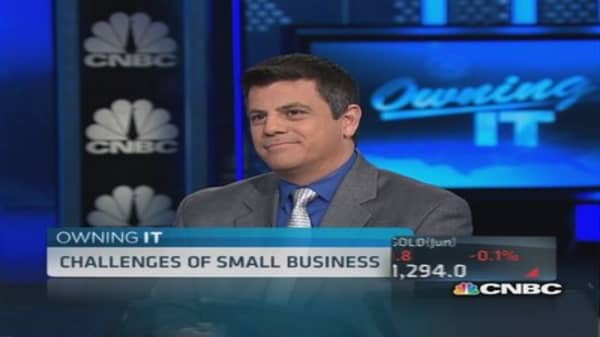The small-business slowdown afflicting the U.S. is apparently a global phenomenon.
American economists recently have pointed to the fading fortunes of U.S. small businesses—once the "engine" of job growth—as a key reason the economic recovery has been longer and deeper than in any post-war recession.
But small businesses throughout the developed world are also struggling, according to research published this week by the Organization for Economic Cooperation and Development. The slowdown in new company formation helps explain why the economies of the developed world are growing slowly or, in the case of much of Europe, mired in recession.
In the 18 countries covered by the study, new and young companies (those less than 2 years old) still create 42 percent of new jobs, even though they account for just 17 percent of total employment. But that pace of job creation is falling as start-ups make up a smaller share of all companies.
The decline in the formation of new businesses is a troubling sign for the economic health of the developed world.
The churn of jobs—as they're destroyed by older companies and created by new ones—may be disruptive to the workers involved. But that churn—economists call it business dynamism—is essential to the long-term health of a growing economy.
"A lot of the new ideas and business models come from (new companies)," said Dirk Pilat, deputy director of the OECD's Science, Technology & Industry Directorate and a co-author of the study. "This dynamism is a source of new job creation, but it's also really important in a dynamic economy where you need to constantly refresh your economy and move into new areas and new markets."
Read MoreHow feel-good companies are navigating the minimum-wage fray
The decline of business dynamism is unfolding unevenly from one country to another, according to the study.
In Belgium, Italy, Japan and Finland, more than half of all small and medium enterprises are at least 10 years old, while in Spain and Hungary less than a third are. The growth patterns of start-ups also differ widely. In the U.S., old manufacturing firms employ seven times more workers than start-ups. In Italy or Norway the ratio drops to just above two and in France, Finland or the Netherlands it is below two.





